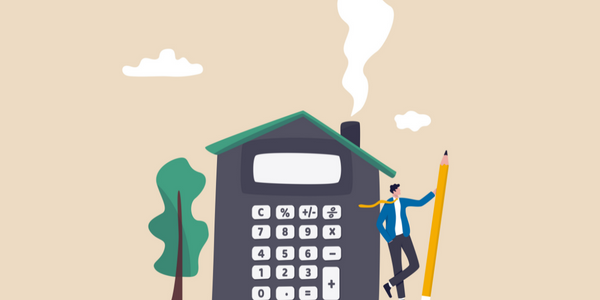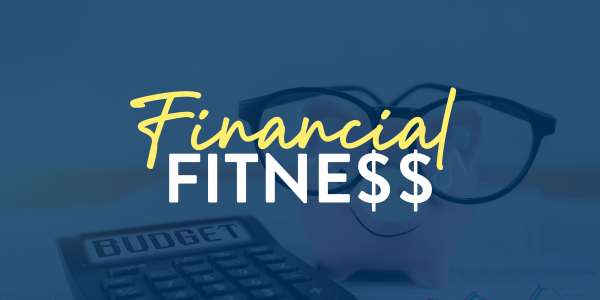
Just when, exactly, is it the right time to buy? That’s the million-dollar question! While no one can definitively answer that for you, there are a few facts you should take into consideration that may provide you with more clarity.
The world is just beginning to get back to “normal,” which means you should start to see more homes enter the market. As establishments begin to open, many employees will also re-enter the workforce and their physical places of employment. These actions should give you a good sense of your own job security, which will help you determine whether it’s the right time to buy a home or not.
One silver lining of the past few months is that there should be less competition for the properties that do hit the market. No one likes a bidding war (except the seller!), so this is an added win for buyers. Throw in low interest rates, and now may be the ideal time to buy!
Of course, there isn’t a one-size-fits-all approach when it comes to homebuying – and this includes the timeline. The truth is, the best time to buy a home is when it’s the right time for you.
Ask yourself the following questions to get an honest assessment of whether you should enter the home buying market:
How secure is my job and income?
The best question you can ask yourself before jumping into a home purchase is if you can afford the monthly mortgage payment. The answer to that comes in the form of a good, hard look at your current employment. Though no one can predict the future, you want to have peace of mind when it comes to job security.
You’ll want to be clear on where you stand, if, say, your company is in the middle of a merger or there’s talk of consolidating branches. You also want to think about whether you’re planning to make a career move soon (or if you just have).
If you’re in a commission-based job, you’ll want to make sure you’re financially secure enough to weather the low-sales months. For example, the holiday season may be booming if you’re in the gift basket industry, but what does your income typically look like August through October? If there’s a significant drop, you want to be sure you can save up enough during the rest of the year to consistently cover your mortgage.
How much do I have for a down payment?
A down payment typically covers 20 percent of the home’s price, though this can be as low as 3.5%, depending on the type and terms of your loan. Even if you have that money at your disposal, you’ll want to make sure it’s not all the money you have.
Tapping into your savings is a great way to fund the down payment – but not if it leaves your bank account on empty. Living paycheck to paycheck can be stressful for anyone, particularly for new homebuyers, as a house is such a sizeable financial commitment. It’s great to put your savings toward something you’ve worked for and dreamed of; just make sure a home purchase doesn’t deplete your emergency fund, should an unforeseen event occur.
On that same token, no one wants to see you cash in your retirement accounts or sell investments you really don’t want to part with just to fund the down payment. If you’re struggling to get this amount together, or this chunk of change is keeping you up at night, this may be a sign that you should either hold off on buying a home or reconsider how much you’re willing to spend.
Click here to read our blog on how to save for a down payment. In addition, you can click here to find out more about Gift Funds, Grants, and Down Payment assistance programs.
How will this loan factor into my other debts?
Carrying a lot of debt is a burden on anyone. Even though lenders and underwriters will look at your debt-to-income ratio before signing off on a mortgage, you still want to take stock of your own inventory. Student loans, credit cards, medical bills and auto loans make up the bulk of our debt portfolios, minus any other real estate you may own.
Take a look at your current loan payments and how this new obligation may impact your life and livelihood. This is also a good time to consolidate debts or speak to debt holders about repayment plans. You may just end up saving yourself a little money in the end!
You also need to consider whether you plan to make any additional large purchases in the near future. Not only may lenders see these purchases as an increased risk, but they may impact your ability to cover all your upcoming housing costs.
What is the current interest rate?
Down payments may be a one-time thing, but mortgage payments come due every month with compounding interest tacked on for good measure. This is why locking in the right interest rate is so important. Take a look at today’s rates and use a mortgage calculator tool to see what that rate would mean for your monthly payments.
You also need to consider whether you want to secure today’s rates with a fixed-rate loan, or if you prefer the flexibility of an APR (annual percentage rate), which may be higher or lower than the fixed rate over the course of your loan.
Remember, too, that rates vary. They can also be influenced by your credit score, so don’t assume that a rate published today will be the rate you secure tomorrow.
Of course, refinancing can always be an option, but you don’t want to lock in an unfavorable rate with the assumption that you’ll automatically be able to refinance whenever you like.
How is my credit score?
Speaking of your credit score, how’s that doing nowadays? While you always want to strive for the best credit score possible, this is even more important in the months leading up to buying a home. The three national credit bureaus allow you to check your credit report for free, which can give you a sense of where you stand, but doesn’t provide your credit score.
You can obtain your credit score by purchasing this information directly from one of the bureaus, using a free credit scoring site, or checking with your bank or credit card companies, many of which offer this service for free. Ideally, you want to focus on your credit as early as possible before you get pre-qualified for a loan, but every little bit helps.
Getting and keeping your score above 620 is considered favorable, though a score of 740 or above will give you the best chance of securing favorable terms on your mortgage.
Have I factored in all costs associated with buying and owning a home?
You have your down payment. You feel good about your monthly mortgage payment. You’re good to go, right? Not quite. There are a few other costs you have to consider when it comes to owning a home. These include both the immediate costs of buying a home, such as closing costs and moving expenses, as well as ongoing costs, such as property taxes, utilities, insurance, home-owner’s association (HOA) dues and maintenance.
These costs can easily add up to four figures, so be sure you know what to expect before you sign on the dotted line.
How long do I see myself in this home?
One of the benefits to renting is the ability to move with relative ease. Many people love the flexibility this affords. If this is you, owning a home may not be the right purchase – at least not right now. That doesn’t mean it’ll never happen, but those who crave variety and spontaneity may find better ways of using their savings than making a long-term investment in a home.
Some are also attracted to homeownership by the large profits televised on home-flipping shows, or from stories friends tell about the “killing” they made on their last home. While this can be true, it is extremely difficult to time the real estate market…and even harder to do so if you’ve only lived in your home for a year. Plus, the fees associated with listing and selling a home so soon after it was purchased can easily eat up any quick profits.
You want to make sure you’re comfortable and confident staying put in this home for at least a few years before you buy. And, yes, renting your home either long-term or temporarily can be an option, but those markets also vary – as do city ordinances, which may prohibit short-term rentals.
Buying a house gives you the chance to build equity and possibly see your home appreciate while providing a stable roof over your family’s head. No landlords to worry about, no rising rents and a fixed monthly cost (aside from your interest rate if you have an APR) make owning a home part of the American Dream for millions of people.
However, not all opportunities are created equal. Make sure your financial well-being and lifestyle align with market conditions to give yourself the best chance at a fruitful homebuying experience.








